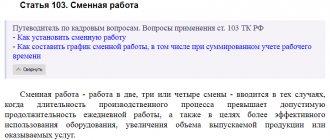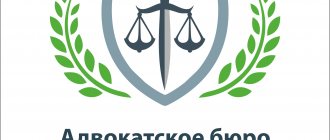The application of compulsory medical measures is carried out under the control of the court. The procedure for their termination, extension or change is regulated by Art. 102 P of the Criminal Code of the Russian Federation, decisions are made solely on the recommendation of the management of the institution that conducts compulsory treatment. The corresponding petition is drawn up on the basis of a conclusion from a medical commission. This requirement is established in Art. 102 part 1 of the Criminal Code of the Russian Federation.
Survey
In Art. 102 part 2 of the Criminal Code of the Russian Federation provides for the procedure for conducting an examination of a subject who has been assigned a compulsory medical measure. A person is examined at least once every six months. Based on the examination, the issue of sending a request to change or terminate treatment to the judicial authority is decided. The examination is carried out at the initiative of the doctor or the subject himself (his representative or relative). The petition is sent through the management of the medical organization or the penal inspection, which monitors the application of these measures regardless of the time of the last examination. If there are no grounds for terminating or changing treatment, the administration of the organization or the institution submits a conclusion on its extension.
Expertise
It is appointed by the court regardless of the period of the last examination and the decision made to end the use of coercive measures. The basis is a petition sent no later than six months before the expiration of the sentence to the administration of the medical institution. An examination is appointed to identify the need to apply compulsory measures to the subject in the future. In particular, we are talking about the time of release on parole, in relation to serving another sentence (more lenient) or after the end of the imputed term.
Additionally
In accordance with Art. 102 of the Criminal Code of the Russian Federation, decisions to terminate or change compulsory medical measures are made in such a condition of the subject in which there is no need for subsequent medical treatment, or when it is necessary to choose a different method. Upon completion of treatment, the judicial authority may transfer the case materials regarding the person who underwent it to the executive federal body in the field of healthcare. The authorized structure, in turn, decides on the continuation of treatment of the subject in a psychiatric clinic or inpatient social service institution for citizens suffering from nervous disorders.
Article 102. Extension, modification and termination of the application of compulsory medical measures
Article 102. Extension, modification and termination of the application of compulsory medical measures
[Criminal Code] [General Part] [Section VI] [Chapter 15]
1. Extension, modification and termination of the application of compulsory measures of a medical nature are carried out by the court upon the proposal of the administration of the medical organization providing compulsory treatment, or the criminal-executive inspection that controls the application of compulsory measures of a medical nature, based on the conclusion of a commission of psychiatrists.
2. A person who has been assigned a compulsory measure of a medical nature is subject to examination by a commission of psychiatrists at least once every six months to decide whether there are grounds for making a submission to the court to terminate the application or to change such a measure. An examination of such a person is carried out at the initiative of the attending physician, if during the course of treatment he came to the conclusion that it is necessary to change the compulsory measure of a medical nature or terminate its application, as well as at the request of the person himself, his legal representative and (or) a close relative. The petition is submitted through the administration of the medical organization providing compulsory treatment, or the criminal-executive inspection, which monitors the use of compulsory medical measures, regardless of the time of the last examination. In the absence of grounds for terminating the application or changing a compulsory medical measure, the administration of the medical organization providing compulsory treatment, or the criminal-executive inspection that monitors the use of compulsory medical measures, submits a conclusion to the court to extend compulsory treatment. The first extension of compulsory treatment can be made after six months from the date of commencement of treatment; thereafter, extension of compulsory treatment is carried out annually.
2.1. Regardless of the time of the last examination and the decision made to terminate the use of compulsory medical measures, the court, on the basis of a petition submitted no later than six months before the expiration of the sentence by the administration of the institution executing the punishment, appoints a forensic psychiatric examination in relation to the person specified in the sentence. paragraph “d” of part one of Article 97 of this Code, in order to resolve the issue of the need to apply compulsory medical measures to him during the period of parole or while serving a more lenient sentence, as well as after serving the sentence. The court, on the basis of the conclusion of a forensic psychiatric examination, may impose a compulsory medical measure provided for in paragraph “a” of part one of Article 99 of this Code, or terminate its application.
3. The change or termination of the application of a compulsory measure of a medical nature is carried out by the court in the event of such a change in the mental state of a person in which there is no need to apply a previously prescribed measure or there is a need to prescribe another compulsory measure of a medical nature.
4. In the event of termination of the use of compulsory treatment in a medical organization providing psychiatric care in inpatient conditions, the court may transfer the necessary materials in relation to the person who was subject to compulsory treatment to the federal executive body in the field of healthcare or the executive body of the constituent entity of the Russian Federation in the field health care to resolve the issue of treating this person in a medical organization providing psychiatric care, or sending this person to an inpatient social service institution for persons suffering from mental disorders, in the manner established by legislation in the field of health care.
Art. 102 of the Criminal Code of the Russian Federation with comments
Article 97 of the Code defines persons to whom compulsory medical measures may be applied. There is no limit to the time subjects can remain on treatment. However, the legislation provides specific deadlines for the examination by psychiatrists. This is necessary so that compulsory treatment for insane criminals or those suffering from mental disorders after an act does not become indefinite. The results of the examination, regardless of the conclusions reached by the commission, are sent to the court by the administration of the medical institution. The authority, in turn, makes an appropriate decision.
A subject undergoing compulsory treatment, in accordance with Art. 102 of the Criminal Code of the Russian Federation, is subject to mandatory examination at least once every six months. If there are no grounds for sending a proposal to the judicial authority to terminate or change the medical measure, a proposal to extend the punishment is sent to the court. In Art. 102 of the Criminal Code of the Russian Federation establishes that treatment is continued for the first time after six months from the date of its start. Subsequent renewals are carried out annually.
What does Article 144 part 2 mean?
1. Obstructing the legitimate professional activities of journalists by forcing them to disseminate or refuse to disseminate information is punishable by a fine in the amount of up to eighty thousand rubles or in the amount of the wages or other income of the convicted person for a period of up to six months, or by compulsory labor for a term of up to one hundred and eighty hours, or correctional labor for up to one year. 2. The same act, committed by a person using his official position, is punishable by a fine in the amount of one hundred thousand to three hundred thousand rubles, or in the amount of the wages or other income of the convicted person for a period of one to two years, or by compulsory labor for a period of from one hundred eighty to two hundred and forty hours, or correctional labor for a term of up to two years, or imprisonment for a term of up to two years with or without deprivation of the right to hold certain positions or engage in certain activities for a term of up to three years.
It depends on what code. See below - the Criminal Code of the Russian Federation, the Criminal Procedure Code of the Russian Federation and the Criminal Code of the RSFSR. Most likely, you are interested in the last option, i.e., according to the old Criminal Code, this was qualified theft - “Theft committed repeatedly, or by prior conspiracy by a group of persons, or with penetration into a home, premises or other storage, and also causing significant damage to the victim , - is punishable by imprisonment for a term of two to seven years with or without confiscation of property.”
You may like => Speech of the State Prosecutor in the Criminal Court in a Special Order
Important point
Compulsory measures are prescribed to cure the subject who has committed an act that poses a danger, to reduce or eliminate the threat posed by him. In this regard, it is extremely problematic to determine in advance exactly the period during which the desired result will be achieved. Therefore, the compulsory treatment prescribed by the court lasts until the moment when, based on the condition of the subject, it can be concluded that the person’s health has improved and the social danger to himself has been reduced, including when it becomes possible to change the medical treatment or cancel it altogether.
Process specifics
If the subject's condition changes and it becomes necessary to prescribe a different medical measure (either more or less strict), the original type of treatment may be changed. This process, as well as the cessation of treatment, according to Art. 102 of the Criminal Code of the Russian Federation is carried out by the court at the request of the management of a psychiatric institution.
The submission is sent on the basis of a conclusion drawn up by a medical commission. The issue of completing or changing the punishment is resolved according to the principle of gradation. It consists of a gradual transition of measures from more to less strict with their subsequent abolition. If the person’s condition improves, which entails a decrease in his danger both to others and to himself, the court may change the previously prescribed measure and refer the subject for outpatient treatment and observation to a psychiatrist. If there is no longer a need to continue medical treatment, the issue of ending it is decided. Relevant grounds may appear during the examination. Discontinuation of treatment may also be initiated by the supervising physician. Resolving the issue of completing the application of measures in accordance with Art. 102 of the Criminal Code of the Russian Federation, falls within the competence of the court.
Article 144 of the Criminal Code of the Russian Federation
shall be punishable by a fine in the amount of one hundred thousand to three hundred thousand rubles, or in the amount of the wages or other income of the convicted person for a period of one to two years, or by compulsory labor for a term of up to four hundred eighty hours, or by corrective labor for a term of up to two years, or by forced labor labor for a term of up to two years with deprivation of the right to hold certain positions or engage in certain activities for a term of up to three years or without it, or imprisonment for a term of up to two years with deprivation of the right to hold certain positions or engage in certain activities for a term of up to three years or without such.
1. The social danger of the crime lies in undermining the constitutional guarantee of freedom of thought and speech, freedom of the media, the prohibition of censorship, as well as the constitutional right to freely seek, receive, transmit, produce and disseminate information in any legal way (Article 29 of the Constitution). The crime violates the right of citizens to reliable and complete information about events, phenomena and processes occurring in the country and abroad.
May 23, 2021 polrostov 144
Share this post
- Related Posts
- Alisultanov Yuzao Prefecture
- Article 116,119,117 Criminal Code
- Success Fee When Paying a Lawyer: Modern Problems, Implementation in the Russian Federation
- Video shooting in the environment in real time from a satellite
Special cases
Federal Law No. 14 supplemented the article in question with part 2.1. In accordance with its provisions, on the basis of a petition sent no later than six months before the end of the term of execution of the imputed sentence, the court appoints a psychiatric examination in relation to a subject who, at the age of 18 or older, committed a crime against the sexual integrity of a minor citizen under 14 years of age suffering from pedophilia (disorder of sexual preference), which does not exclude sanity. This procedure is carried out regardless of the period of the last examination and the decision made to complete compulsory treatment. An examination is necessary to establish or exclude the need to apply medical influence to the specified person during parole or after release, as well as when serving a more lenient sentence. Based on the conclusion, the court may impose a compulsory measure in the form of outpatient treatment and observation or terminate treatment.
Another commentary on Article 102 of the Criminal Code of the Russian Federation
1. The very need to regulate in criminal law the application, extension, modification and termination of compulsory measures of a medical nature is explained by the fact that the court, when imposing compulsory measures of a medical nature, does not establish their terms, since achieving the goals of applying these measures (Article 98 of the Criminal Code of the Russian Federation) depends from a number of factors that cannot be taken into account and assessed in advance (the nature and course of a mental disorder, specific possibilities for its treatment, personal characteristics of the patient, etc.).
2. When deciding the issue of extending, changing and terminating the application of compulsory medical measures, the court may disagree with the administration of the institution providing compulsory treatment, or the penal inspection that controls the application of compulsory medical measures, which, on the basis of the conclusion of a commission of psychiatrists, send submission to the court on the advisability of extending or terminating such measures.
3. Based on the results of consideration of the issue of termination, modification or extension of a compulsory measure of a medical nature, the court makes one of the following decisions: on the termination of a compulsory measure of a medical nature, if due to the recovery of the person or such a change in his mental state, there is no longer a need for further application of the previously prescribed measure; on changing the application of a compulsory measure of a medical nature, if, due to an improvement or deterioration in the mental state of a person, it becomes necessary to assign him another form of application of a compulsory measure of a medical nature for the next six months, if there are no grounds for terminating or changing this measure due to the absence of a change in the mental state of the person , which necessitates the court extending the application of compulsory treatment to this person; on refusal to terminate, change or extend the application of a compulsory measure of a medical nature, if the mental state and degree of public danger of such a person excludes the possibility of satisfying the initiated petition.
4. A special decision was made by the legislator in relation to those convicted over the age of eighteen for committing crimes against the sexual integrity of a minor under fourteen years of age, and suffering from a disorder of sexual preference (pedophilia), which does not exclude sanity. Firstly, the court, considering the submission of the administration of the institution executing the sentence, six months before serving the sentence, appoints a forensic psychiatric examination of such persons in order to resolve the issue of the need to apply compulsory medical measures to him during the period of parole or during the period of serving a more lenient type of punishment, as well as after serving the sentence. Secondly, by virtue of Federal Law No. 14-FZ dated February 29, 2012, the provision of this part of the norm applies to convicted persons who committed crimes before the entry into force of this Law. This provision is in some contradiction with Part 1 of Art. 10 of the Criminal Code, according to which a criminal law establishing the criminality of an act, increasing punishment or otherwise worsening a person’s position does not have retroactive effect. To eliminate this contradiction, clarification from the highest judicial authorities is required.



